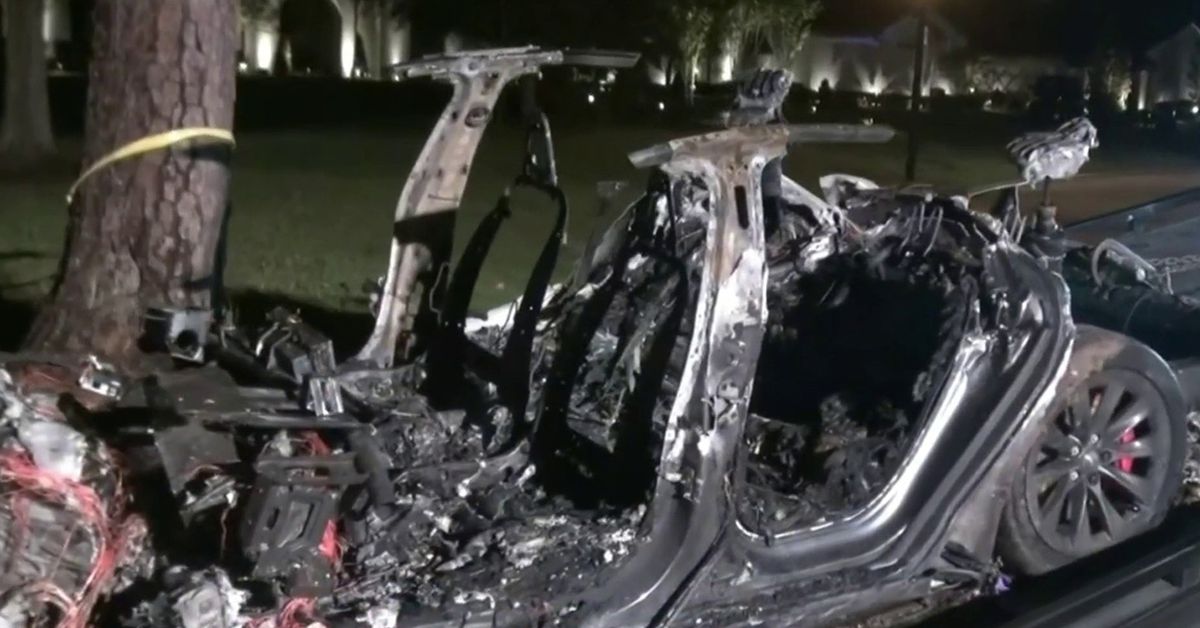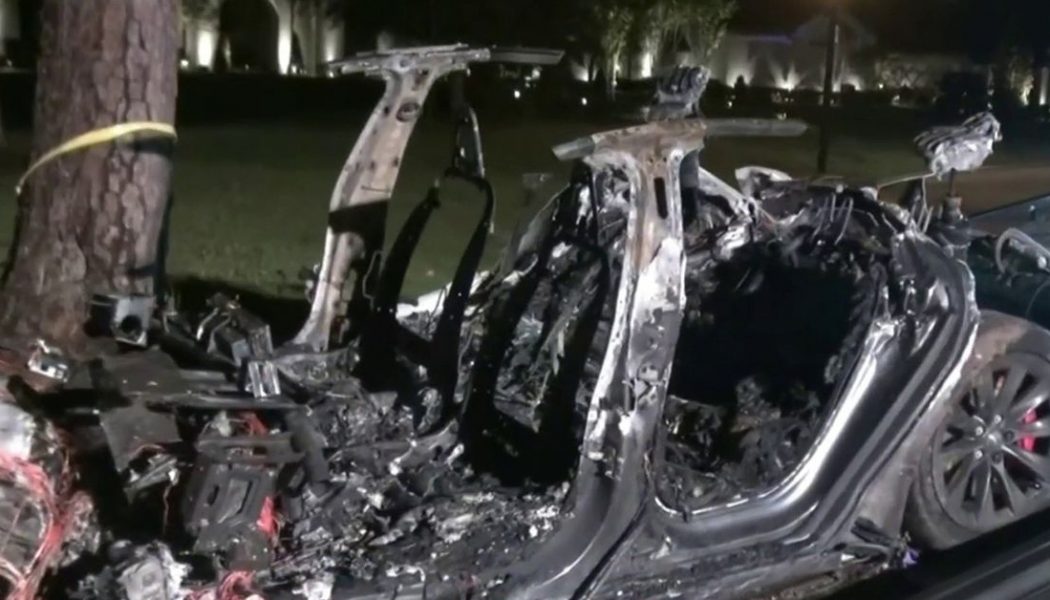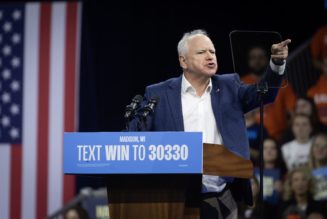
Authorities in Texas say two people were killed when a Tesla with no one in the driver’s seat crashed into a tree and burst into flames, Houston television station KPRC 2 reported.
The cause of the crash, which happened at about 9PM local time in Spring, Texas (near Houston), is under investigation. According to KHOU in Houston, first responders had to use 30,000 gallons of water over four hours to put out the fire, as the Tesla’s battery kept reigniting. Authorities tried to contact Tesla for advice on putting out the fire; it’s not clear whether they received any response.
Two men dead after fiery crash in Tesla Model S.
“[Investigators] are 100-percent certain that no one was in the driver seat driving that vehicle at the time of impact,” Harris County Precinct 4 Constable Mark Herman said. “They are positive.” #KHOU11 https://t.co/q57qfIXT4f pic.twitter.com/eQMwpSMLt2
— Matt Dougherty (@MattKHOU) April 18, 2021
Preliminary reports suggest the car was traveling at a high rate of speed and failed to make a turn, then drove off the road into a tree. One of the men killed was in the front passenger seat of the car, the other was in the back seat, according to KHOU. Harris County Precinct 4 Constable Mark Herman told KPRC that “no one was driving” the fully-electric 2019 Tesla at the time of the crash. It’s not yet clear whether the car had its Autopilot driver assist system activated.
Tesla didn’t respond to a request for comment on Sunday. The company dissolved its press office and doesn’t usually respond to media inquiries, however.
There have been at least 23 Autopilot related crashes under investigation by the National Highway Traffic Safety Administration, but this appears to be the first fatal crash where there was no driver in the driver’s seat. Tesla has previously cautioned its customers that Autopilot is not an autonomous driving system and still requires constant attention to the road while in use. The company’s cars only check that attention with a sensor that measures torque in the steering wheel, though, leaving room for misuse — something the National Transportation Safety Board admonished Tesla for last year.
Tesla has previously provided guidance for first responders who encounter fires involving its EV batteries. Reignition of the battery can be a problem, because unlike gas-powered vehicles, even if the fire is extinguished, an EV battery still has stored energy. Tesla’s guidance suggests it’s better to let the fire burn out than continuing to try to put it out.
In the past, Tesla CEO Elon Musk has rejected calls from Tesla engineers to add better safety monitoring when a vehicle is in Autopilot, such as eye-tracking cameras or additional sensors on the steering wheel, saying the tech is “ineffective.” He said in 2018 that Tesla would regularly release safety data about its Autopilot feature, but added that “negative” press coverage about it might persuade customers not to use it.
“When there is a serious accident it is almost always, in fact maybe always, the case that it is an experienced user, and the issue is more one of complacency,” Musk said on a May 2018 call with investors. “They just get too used to it. That tends to be more of an issue. It’s not a lack of understanding of what Autopilot can do. It’s [drivers] thinking they know more about Autopilot than they do.”










